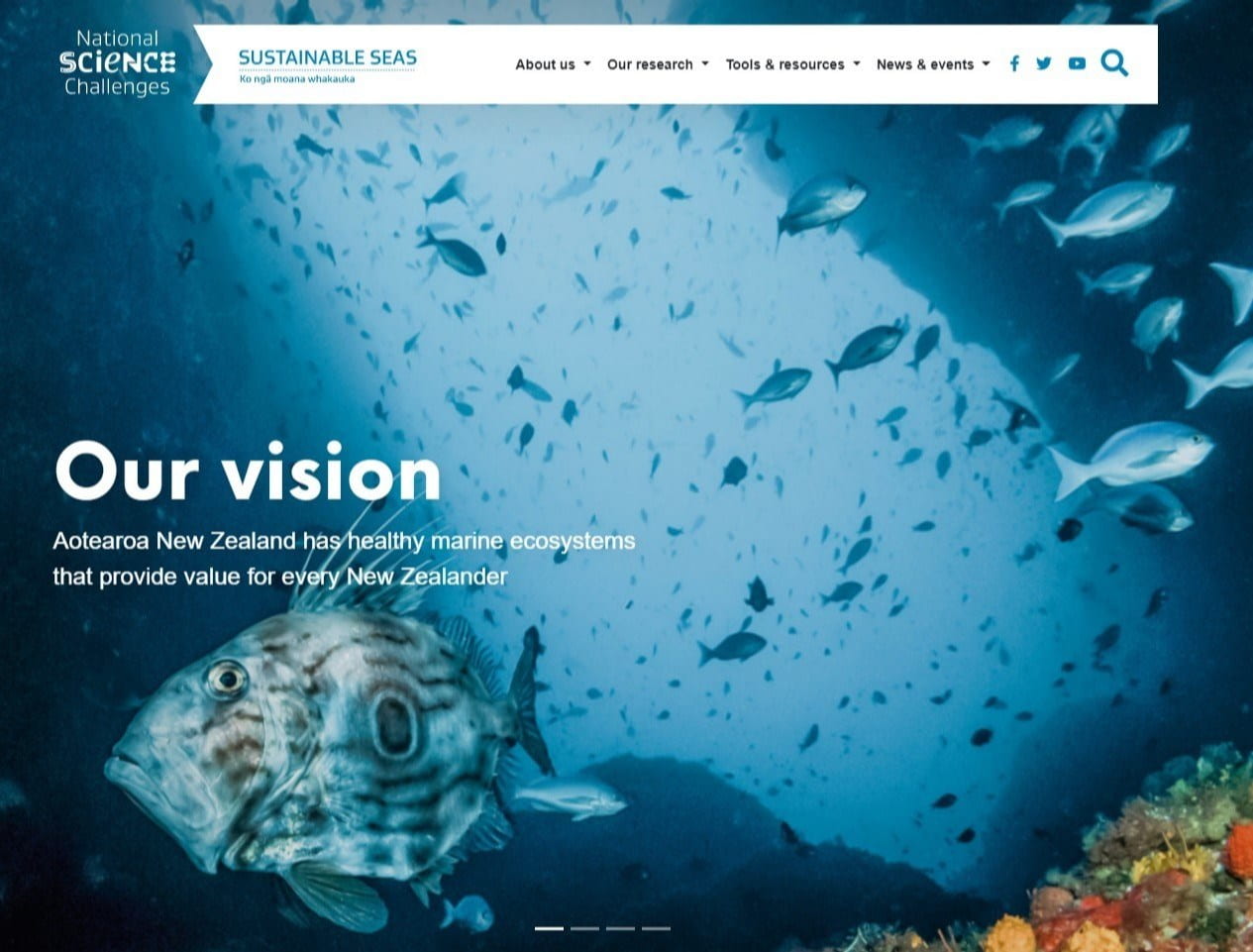The need for long-term strategically focused research funding in the marine environment was recognised when Sustainable Seas was established as one of the 11 National Science Challenges.
Sustainable Seas is a 10-year research program (2014-2024) that brings together around 250 biophysical scientists, economists, social scientists, and experts in mātauranga Māori and policy from across Aotearoa New Zealand. It has 52 active/completed projects, and around 15 more in development and a number of business-focused Innovation Fund projects. The vision is “for Aotearoa New Zealand to have healthy marine ecosystems that provide value for all New Zealanders”.
There are many and growing competing uses of Aotearoa New Zealand’s marine environment. Sustainable Seas’ research addresses the question, “How can we best develop our marine economy, while protecting the taonga of our marine environment?” by focusing on:
- Improving marine resource decision making and the health of our seas through holistic ecosystem-based management (EBM).
- Transforming Aotearoa New Zealand’s ability to enhance our marine economy into a blue economy.
There are six research themes. Projects within these core research themes have been or are being co-developed with stakeholders and Māori partners.
- Tangaroa. Research that centres and is led by Māori, to explore the development of EBM that is founded on and informed by mātauranga and tikanga Māori.
- Degradation and recovery. Investigating ways to assess the effects of human activities and natural events on marine ecosystems, and the potential for recovery.
- Blue economy. Investigating opportunities for marine activities that create economic value and contribute positively to social, cultural and ecological well-being in Aotearoa New Zealand.
- Risk and uncertainty. Addressing how to improve decision making by investigating people’s perceptions of risk and uncertainty, and the best ways to communicate them.
- Enhancing EBM practices. Investigating how practice, policy, regulation and legislation can be tailored to support EBM for Aotearoa New Zealand.
- EBM in action. Working with stakeholders and Māori partners to undertake real-world trials of the EBM knowledge and tools our research is generating.
Sustainable Seas has developed – with input from stakeholders and Māori partners – a definition of and principles for EBM for Aotearoa.
Sustainable Seas has recognised the importance of bringing in the very many stakeholders in the marine environment. Engagement with, and participation from, all sectors of society is critical to Sustainable Seas’ success. The fraught relationships within the marine realm make this very challenging. The Challenge is working with Government (central, regional and local), businesses, Māori partners and communities to identify and develop the tools needed to enable EBM and a blue economy. Opportunities to work more closely with the fisheries industry would strengthen its potential to address the sector’s biggest challenges.
This research programme has been an important start to address the need for long-term, strategic, collaborative and integrated approach to research in the marine environment, including fisheries. There is significant room to build upon this work, undertaken with significant co-funding, to fill the knowledge gaps about our marine environment and support more sustainable uses of this resource into the future.

